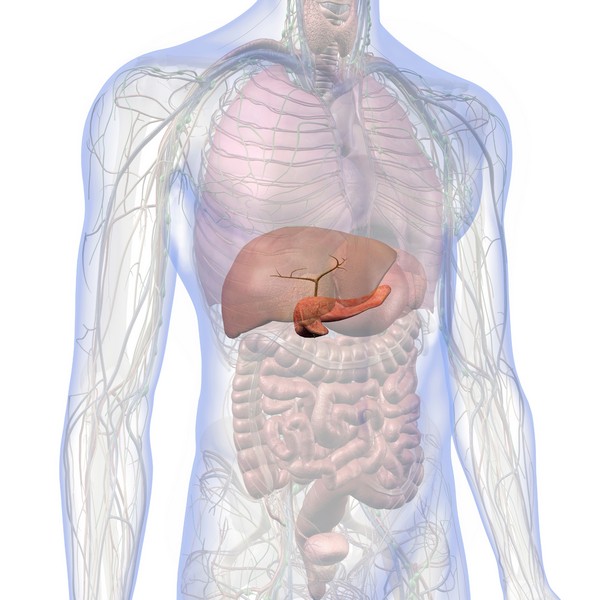Key Takeaways
- Metabolic health reflects how well your body processes energy and maintains stable blood sugar, cholesterol, and blood pressure.
- Key indicators of metabolic health include waist circumference, blood pressure, blood sugar, triglycerides, and cholesterol levels.
- Poor metabolic health increases the risk of conditions like obesity, diabetes, and heart disease.
- A diet rich in nutrient-dense, bioavailable foods, along with regular exercise and quality sleep, supports metabolic health.
- Maintaining stable blood sugar and insulin levels is essential for long-term metabolic well-being.
What is Metabolic Health?

Metabolic health refers to how efficiently your body processes and uses energy from the food you eat.
When metabolically healthy, your body can maintain stable blood sugar, cholesterol, and blood pressure without the need for medications.
Metabolic health is important because it affects overall well-being, energy levels, and reduces the risk of developing chronic diseases.
How Metabolic Health Impacts Overall Well-being
Good metabolic health ensures that your body can efficiently use nutrients from food, manage blood sugar levels, and regulate hormones like insulin.
When your metabolism functions properly, your body can handle stress, maintain energy, and avoid weight gain, leading to improved physical and mental health.
Key Markers of Metabolic Health

Waist Circumference
Excess belly fat is a key indicator of poor metabolic health. A large waist circumference is often linked to insulin resistance and an increased risk of heart disease.
Blood Pressure
Healthy blood pressure indicates that your heart and blood vessels are functioning well. High blood pressure is often a sign of metabolic problems and is linked to heart disease and stroke.
Blood Sugar Levels
Fasting blood sugar levels should be within a healthy range. Elevated blood sugar can indicate insulin resistance or diabetes, both of which are signs of poor metabolic health.
Triglycerides and Cholesterol
Healthy triglyceride and cholesterol levels are important markers of metabolic health. High triglycerides or low HDL cholesterol levels are linked to an increased risk of heart disease.
Insulin Sensitivity
Insulin sensitivity is your body’s ability to efficiently use insulin to regulate blood sugar. Poor insulin sensitivity, or insulin resistance, is a major indicator of metabolic dysfunction.
Energy Levels
Metabolic dysfunction often leads to constant fatigue and low energy, as the body struggles to efficiently use nutrients for fuel.
Why Metabolic Health Matters

Link to Chronic Diseases (Diabetes, Heart Disease)
Poor metabolic health is a leading cause of chronic diseases like diabetes, heart disease, and stroke. Addressing metabolic dysfunction can help prevent or manage these conditions.
Role in Weight Management
Metabolic health plays a key role in how your body regulates fat storage. When metabolism functions well, it becomes easier to maintain a healthy weight and avoid excess fat accumulation.
Impact on Energy and Mood
Good metabolic health leads to steady energy levels throughout the day and helps maintain a stable mood. Poor metabolic health, on the other hand, can cause mood swings, irritability, and fatigue.
How to Improve Metabolic Health
Prioritize Nutrient-Dense, Bioavailable Foods
Eating nutrient-dense foods like grass-fed red meat, eggs, and wild-caught seafood supports your metabolism by providing essential nutrients.
These foods are bioavailable, meaning your body can easily absorb and use them for energy and cell repair.
Regular Physical Activity
Exercise is essential for maintaining good metabolic health. Strength training and aerobic activities help improve insulin sensitivity, burn fat, and keep blood sugar levels stable.
Sleep and Stress Management
Quality sleep and effective stress management are key to maintaining a healthy metabolism. Poor sleep and chronic stress lead to hormonal imbalances that can negatively impact blood sugar, weight, and energy levels.
Maintaining Healthy Blood Sugar Levels
Eating balanced meals that contain protein, healthy fats, and low-glycemic vegetables helps prevent blood sugar spikes.
Avoiding processed sugars and refined carbohydrates is essential for stabilizing blood sugar and supporting overall metabolic health.
Avoiding Processed Foods and Sugars

Ultra-Processed foods and added sugars contribute to metabolic dysfunction by promoting insulin resistance and inflammation. Focus on whole, unprocessed foods to maintain a healthy metabolism.
Tests for Measuring Metabolic Health
Fasting Blood Sugar Test
This test measures your blood sugar levels after fasting for 8-12 hours. Healthy levels indicate good insulin sensitivity, while high levels may signal metabolic issues.
Blood Pressure Readings
Regular blood pressure checks help monitor the health of your cardiovascular system. High readings may indicate underlying metabolic problems.
Lipid Panel (Cholesterol and Triglycerides)
A lipid panel tests your cholesterol and triglyceride levels. Healthy results indicate that your body is efficiently managing fats and cholesterol, which is a sign of good metabolic health.
Waist-to-Hip Ratio
Measuring your waist-to-hip ratio provides insight into fat distribution. A higher ratio indicates excess abdominal fat, which is associated with poor metabolic health.
FAQs
What are the key markers of good metabolic health?
Key markers include healthy blood sugar levels, waist circumference, blood pressure, triglycerides, and cholesterol levels, as well as good insulin sensitivity.
How does blood sugar affect metabolic health?
Blood sugar levels that remain elevated over time can lead to insulin resistance and increase the risk of type 2 diabetes, a key sign of poor metabolic health.
Can you improve metabolic health through diet and exercise?
Yes, consuming nutrient-dense, bioavailable foods and engaging in regular physical activity help improve metabolic health by stabilizing blood sugar, improving insulin sensitivity, and promoting fat loss.
What role does sleep play in maintaining metabolic health?
Sleep is crucial for hormone regulation and energy balance. Poor sleep disrupts metabolism, leading to increased hunger, weight gain, and insulin resistance.
How do you know if you are metabolically healthy?
You are likely metabolically healthy if your blood sugar, blood pressure, waist circumference, cholesterol, and triglyceride levels are within a healthy range, and you maintain stable energy throughout the day. Regular testing and monitoring are recommended.
Research
Angelico F, Baratta F, Coronati M, Ferro D, Del Ben M. Diet and metabolic syndrome: a narrative review. Intern Emerg Med. 2023 Jun;18(4):1007-1017. doi: 10.1007/s11739-023-03226-7. Epub 2023 Mar 16. PMID: 36929350.
Albrink, M.J., Lavietes, P.H., & Man, E.B. (1963). Vascular disease and serum lipids in diabetes mellitus: Observations over thirty years (1931-1961). Ann Intern Med, 58, 305-323.
https://pubmed.ncbi.nlm.nih.gov/14011776/
Allen, F.M., Stillman, E., & Fitz, R. (1919). Total dietary regulation in the treatment of diabetes. Monograph 11. Rockefeller Institute for Medical Research.
Banting, F.G., & Best, C.H. (1922). The internal secretion of the pancreas. J Lab Clin Med, 7, 465–480.
Baker, S., 2019. The carnivore diet. Victory Belt Publishing.
Byrne, P., Demasi, M., Jones, M., Smith, S.M., O’Brien, K.K. and DuBroff, R., 2022. Evaluating the Association Between Low-Density Lipoprotein Cholesterol Reduction and Relative and Absolute Effects of Statin Treatment. JAMA Internal Medicine, [online] 182(5), p.474.
https://www.ncbi.nlm.nih.gov/pmc/articles/PMC8922205/
Caballero, B. (2019). Humans against Obesity: Who Will Win? Advances in Nutrition, 10(Suppl 1), S4. https://doi.org/10.1093/advances/nmy055
Cleven, L., Krell-Roesch, J., E. Schmidt, S. C., Dziuba, A., Bös, K., Jekauc, D., & Woll, A. (2022). Longitudinal association between physical activity and the risk of incident metabolic syndrome in middle-aged adults in Germany. Scientific Reports, 12. https://doi.org/10.1038/s41598-022-24052-5
Fahed, G., Aoun, L., Zerdan, M. B., Allam, S., Zerdan, M. B., Bouferraa, Y., & Assi, H. I. (2022). Metabolic Syndrome: Updates on Pathophysiology and Management in 2021. International Journal of Molecular Sciences, 23(2). https://doi.org/10.3390/ijms23020786
Grundy, S. M., Stone, N. J., Bailey, A. L., Beam, C., Birtcher, K. K., Blumenthal, R. S., Braun, L. T., Faiella-Tommasino, J., Forman, D. E., Goldberg, R., Heidenreich, P. A., Hlatky, M. A., Jones, D. W., Lloyd-Jones, D., Lopez-Pajares, N., Ndumele, C. E., Orringer, C. E., Peralta, C. A., Saseen, J. J., . . . Yeboah, J. (2019). 2018 AHA/ACC/AACVPR/AAPA/ABC/ACPM/ADA/AGS/ APhA/ASPC/NLA/PCNA Guideline on the Management of Blood Cholesterol: Executive Summary: A Report of the American College of Cardiology/American Heart Association Task Force on Clinical Practice Guidelines. Circulation, 139(25), e1082. https://doi.org/10.1161/CIR.0000000000000625
Han, T. S., & Lean, M. E. (2015). Metabolic syndrome. Medicine, 43(2), 80-87. https://doi.org/10.1016/j.mpmed.2014.11.006
He, Y., Wu, W., Wu, S., Zheng, M., Li, P., Sheng, F., Chen, X., Chen, H., Ji, Y., Zheng, X., Mujagond, P., Chen, J., Rong, H., Chen, P., Lyu, Y., Wang, X., Xu, B., Wu, B., Yu, N., . . . Zhou, W. (2018). Linking gut microbiota, metabolic syndrome and economic status based on a population-level analysis. Microbiome, 6. https://doi.org/10.1186/s40168-018-0557-6
Huang, P.L., 2009. A comprehensive definition for metabolic syndrome. Disease Models & Mechanisms, [online] 2(5–6), pp.231–237. https://doi.org/10.1242/dmm.001180.
Kazemi, T., Sharifzadeh, G., Zarban, A., & Fesharakinia, A. (2013). Comparison of Components of Metabolic Syndrome in Premature Myocardial Infarction in an Iranian Population: A Case -Control Study. International Journal of Preventive Medicine, 4(1), 110-114. https://www.ncbi.nlm.nih.gov/pmc/articles/PMC3570902/
Khatiwada, S., Sah, S. K., KC, R., Baral, N., & Lamsal, M. (2016). Thyroid dysfunction in metabolic syndrome patients and its relationship with components of metabolic syndrome. Clinical Diabetes and Endocrinology, 2. https://doi.org/10.1186/s40842-016-0021-0
Kim, Y., & Yi, S. (2018). Analysis of the relationship between physical activity and metabolic syndrome risk factors in adults with intellectual disabilities. Journal of Exercise Rehabilitation, 14(4), 592-597. https://doi.org/10.12965/jer.1836302.151
Magliano DJ, Shaw JE, Zimmet PZ. How to best define the metabolic syndrome. Ann Med. 2006;38(1):34-41. doi: 10.1080/07853890500300311. Erratum in: Ann Med. 2006;38(2):160. PMID: 16448987.
McCracken, E., Monaghan, M., & Sreenivasan, S. (2018). Pathophysiology of the metabolic syndrome. Clinics in Dermatology, 36(1), 14-20. https://doi.org/10.1016/j.clindermatol.2017.09.004
Opie, L.H., 2007. Metabolic Syndrome. Circulation, [online] 115(3). https://doi.org/10.1161/circulationaha.106.671057.
Palaniappan, L. P., Wong, E. C., Shin, J. J., Fortmann, S. P., & Lauderdale, D. S. (2011). Asian Americans Have Greater Prevalence of Metabolic Syndrome Despite Lower Body Mass Index. International Journal of Obesity (2005), 35(3), 393. https://doi.org/10.1038/ijo.2010.152
Pucci G, Alcidi R, Tap L, Battista F, Mattace-Raso F, Schillaci G. Sex- and gender-related prevalence, cardiovascular risk and therapeutic approach in metabolic syndrome: A review of the literature. Pharmacol Res. 2017 Jun;120:34-42. doi: 10.1016/j.phrs.2017.03.008. Epub 2017 Mar 12. PMID: 28300617.
Ramsden, C.E., Zamora, D., Majchrzak-Hong, S., Faurot, K.R., Broste, S.K., Frantz, R.P., Davis, J.M., Ringel, A., Suchindran, C.M. and Hibbeln, J.R., 2016. Re-evaluation of the traditional diet-heart hypothesis: analysis of recovered data from Minnesota Coronary Experiment (1968-73). BMJ, [online] p.i1246.
https://doi.org/10.1136/bmj.i1246.
Rochlani, Y., Pothineni, N.V., Kovelamudi, S. and Mehta, J.L., 2017. Metabolic syndrome: pathophysiology, management, and modulation by natural compounds. Therapeutic Advances in Cardiovascular Disease, [online] 11(8), pp.215–225. https://doi.org/10.1177/1753944717711379.
Saklayen, M. G. (2018). The Global Epidemic of the Metabolic Syndrome. Current Hypertension Reports, 20(2).
https://doi.org/10.1007/s11906-018-0812-z
Saltiel, A. R., & Olefsky, J. M. (2017). Inflammatory mechanisms linking obesity and metabolic disease. The Journal of Clinical Investigation, 127(1), 1-4. https://doi.org/10.1172/JCI92035
Scuteri, A., Laurent, S., Cucca, F., Cockcroft, J., Cunha, P. G., Mañas, L. R., Mattace Raso, F. U., Muiesan, M. L., Ryliškytė, L., Rietzschel, E., Strait, J., Vlachopoulos, C., Völzke, H., Lakatta, E. G., & Nilsson, P. M. (2015). THE METABOLIC SYNDROME ACROSS EUROPE – DIFFERENT CLUSTERS OF RISK FACTORS. European Journal of Preventive Cardiology, 22(4), 486. https://doi.org/10.1177/2047487314525529
Szypowska, A., Zatońska, K., Szuba, A., & Regulska-Ilow, B. (2023). Dietary Inflammatory Index (DII)® and Metabolic Syndrome in the Selected Population of Polish Adults: Results of the PURE Poland Sub-Study. International Journal of Environmental Research and Public Health, 20(2). https://doi.org/10.3390/ijerph20021056
Xu, H., Li, X., Adams, H., Kubena, K., & Guo, S. (2019). Etiology of Metabolic Syndrome and Dietary Intervention. International Journal of Molecular Sciences, 20(1). https://doi.org/10.3390/ijms20010128
Vitamin A (Retinol): Essential Nutrient for Health
Key Takeaways: Natural Vitamin A, also known as Retinol, is crucial for vision, immune function, and skin health. Retinol is essential for healthy vision, particularly…
Bee Pollen: Nature’s Secret Superfood
Key Takeaways Bee pollen is packed with essential nutrients and offers numerous health benefits. It supports immune function, boosts energy, and promotes overall well-being. Adding…
L-Carnitine: Benefits, Dosage, and Side Effects
Key Takeaways L-Carnitine supports fat metabolism and energy production. Benefits include enhanced exercise performance and improved heart health. Proper dosing minimizes potential side effects. Understanding…
Benefits of Sea Moss Explained
Key Takeaways Rich in Nutrients: Sea moss is packed with essential vitamins, minerals, and antioxidants, supporting overall health and wellness. Supports Immune Function: Its high…
Eggs: A Comprehensive Guide
Key Highlights Eggs are a nutritional powerhouse, containing all the essential vitamins and minerals needed for overall health. Vital role in a balanced diet, providing…
Grains & Legumes Secretly Harming Your Health? Find Out Now!
Key Takeaways: – Grains and legumes contain antinutrients like lectins and phytic acid, which can interfere with nutrient absorption. – These foods may trigger digestive…
How Stabilized Rice Bran Supports Digestive & Heart Health
Key Takeaways – Stabilized rice bran is a nutrient-rich source of vitamins, minerals, and antioxidants. – The stabilization process prevents rancidity, making it a long-lasting…
Spirulina: Health Benefits and Uses
Key Takeaways Spirulina boosts immune function with its high nutrient content and antioxidant properties. Rich in proteins and essential vitamins, enhances overall nutrition. Helps reduce…
Protein: You probably need more
Key Takeaways Protein is needed for building and repairing body tissues. It supports muscle growth, immune function, and hormone production. Bioavailable sources of protein include…
Natural Treatment for Irritable Bowel Syndrome (IBS): Effective Remedies Explored
Understanding IBSSymptoms of IBSRole of Diet in IBSNatural Remedies for IBSSupplements for IBSRole of Probiotics in IBSFrequently Asked Questions Understanding IBS Irritable Bowel Syndrome (IBS)…
Creatine Myths Debunked: Separating Fact from Fiction
Key Takeaways Common myths about creatine, such as it causing kidney damage, weight gain, and being a steroid, are widespread but unsupported by scientific evidence….
Tallow: Benefits, Uses, and Nutrition
Key Takeaways: Tallow is a nutrient-rich animal fat with many practical uses. It contains valuable vitamins such as A, D, E, and K. Tallow is…
Conjugated Linoleic Acid (CLA): Benefits & Sources
Key Takeaways CLA is a type of fatty acid found primarily in animal products like beef and dairy. Known for potential benefits such as weight…
Increase GLP-1 Agonists Naturally
Key Takeaways: GLP-1 agonists regulate appetite, insulin production, and blood sugar levels. Regular exercise and quality sleep maintain optimal GLP-1 levels. High-protein, low-carb diets effectively…
The Impact of Ultra-Processed Foods on Your Wellbeing
Every bite we take is a step toward either wellness or illness. In our fast-paced world, ultra-processed foods have become a staple, silently shaping our…
Keto Diet 101: A Complete Beginner’s Guide
Key Highlights The ketogenic diet is a low-carb, high-fat diet that can lead to weight loss and has many health benefits. By reducing carbohydrate intake…
Copper: Little-Known Health Benefits
Key Takeaways Copper is an essential trace mineral with benefits, including ceruloplasmin production, energy production and antioxidant properties. Copper is critical for brain health by…
Postbiotics: What They Are and Why They Are Important
Key Takeaways Postbiotics 101: They’re beneficial by-products from probiotics that consume prebiotics Boosts Immunity: Postbiotics sharpen your immune system, helping fight off pathogens and reducing…
CoQ10: What Is It and Why Is It Important?
Key Takeaways CoQ10 (Coenzyme Q10) is an antioxidant produced by the body, essential for energy production in cells. Levels of CoQ10 naturally decrease with age…
Is Eating Sugar Really That Bad For Your Health?
Should You Really Be Concerned? In short, YES! Thank you, that’s all folks, and do have a good evening. Seriously though, extensive research has established…
8 Key Signs of Nutrient Deficiency
Key Takeaways Magnesium: A multitasker that aids in over 300 biochemical reactions in the body. Copper: Supports neurological function, cardiovascular and immune system health, iron…
Boron: Benefits of a Lesser-Known Mineral
Key Takeaways Boron is a trace mineral with significant health benefits. It supports brain function, bone health, and hormonal balance. Understanding boron’s role can improve…
Magnesium: Better Sleep, Stress Relief and More
Do This! The Ultimate Guide to Fasting Safely and Effectively
In our increasingly busy lives, finding time to take care of our bodies can often take a backseat. One method that has gained attention recently…
L-Glutamine and Gut Health: Benefits and Side Effects
Key Takeaways L-Glutamine is essential for gut health. Benefits include improved digestion and reduced inflammation. Potential side effects are rare but can occur in high…
Potassium: Benefits & Sources
Key Takeaways Potassium is essential for regulating fluid balance, nerve signals, and muscle function. It supports heart health and helps maintain proper blood pressure. Adequate…
Berberine Has 11 More Incredible Benefits Than You Thought
Berberine is a compound found in several plants that has been used for centuries in traditional Chinese medicine and Ayurveda. It has recently gained popularity…
Benefits of Nutritional Yeast
Key Takeaways Nutritional yeast is a rich source of vitamins and minerals. It supports immune function and promotes skin health. Its cheesy flavor makes it…
Iron Overload: Symptoms & Prevention Tips
Key Takeaways: Iron overload happens when the body absorbs excessive iron, which can damage organs. Common symptoms include fatigue, joint pain, and skin changes. Early…
5-HTP: Natural Ways to Boost Serotonin and Improve Mood
Key Takeaways: 5-HTP is a natural compound that helps boost serotonin levels in the brain. It can support mood regulation, sleep improvement, and stress reduction….
Zinc Supplements: Risks and Dangers
Key Takeaways Zinc supports immunity, wound healing, and cell growth. High zinc supplement doses can cause health problems. Always consult a healthcare provider before taking…
Trimethylglycine TMG: Betaine Anhydrous Explained
Actual Superfoods: Real Foods You Should Be Eating
Key Takeaways Superfoods are nutrient-dense foods, offering essential vitamins, minerals, and fats. Prioritize high-quality sources for optimal nutrition. They support overall health, boost energy, and…
Cholesterol Misconceptions: Separating Fact from Fiction
Key Takeaways: High inflammation and blood pressure are major risk factors for heart disease. Cholesterol is vital for hormone production, cell membrane structure, and digestion,…
13 Most Dangerous Foods Revealed
Key Highlights Fugu, or pufferfish, is one of the most poisonous foods in the world, with its organs containing a neurotoxin that can paralyze motor…
Carnivore Diet: Benefits, Risks, Food List & More
Key Takeaways The carnivore diet is a keto diet that only allows for animal-based foods, and has potential health benefits. Tips for success include hydrating,…
Allulose: The Best Sugar Alternative
Key Takeaways Allulose is a low-calorie sweetener found naturally in some fruits. It does not raise blood sugar levels, making it suitable for diabetics. Allulose…
11 Electrifying Health Benefits of Trace Minerals
What are Trace Minerals?The Major Roles of Trace MineralsSources of Trace MineralsDeficiencies in Trace MineralsThe Impact of Trace Minerals on Specific Health ConditionsFrequently Asked Questions…
Calcium Supplements: What You Need to Know
Key Takeaways Calcium supplements have been linked to heart disease and kidney stones. Excess calcium from supplements can lead to imbalances and health issues. Natural…
Silica: for Healthier Skin, Hair, and Nails
TUDCA Benefits for Health
Key Takeaways TUDCA promotes liver health, aiding cell protection and repair. Enhances digestion by improving bile flow and supporting gut health. May protect brain health…
Healthy Fat: is Butter Better?
Key Takeaways Saturated fats, like those found in butter, may not be as harmful as once thought and can be part of a healthy diet….
Liver: 5 Surprising Benefits Backed by Science
Hold on! Don’t run away! You need to read this. Liver is a highly nutritious organ meat that is often overlooked in modern diets. Packed…
How Cod Liver Oil Can Transform Your Health and Wellness
Cod liver oil has been used for centuries as a natural remedy for various health conditions. Packed with essential nutrients and fatty acids, cod liver…
Red Palm Oil: Unveiling The Potent Health Benefits
Struggling to find the right oil for your health and kitchen? Red palm oil is packed with nutrients that might just be what you need….
5 Major Benefits of Omega-3 Fatty Acids
Key Takeaways Omega-3 fatty acids support heart health by reducing triglycerides and lowering blood pressure. They play an important role in brain function and development,…
How Collagen Supports Healthy Skin, Joints, and More
Key Takeaways Collagen is the most abundant protein in the body, supporting the structure of skin, bones, and connective tissues. It helps maintain skin elasticity,…
ALA vs. DHA & EPA Omega-3: Why Source Matters
Key Takeaways ALA (Alpha-Linolenic Acid) is found in flaxseeds, chia seeds, and walnuts, but converts poorly to DHA and EPA. DHA and EPA are critical…
6 Best Natural Ways to Manage Your Blood Sugar: A Quick & Easy Guide
1. Intermittent fasting2. Exercise3. Dietary fiber4. Sleep5. Weight loss6. SupplementationBioclinic NaturalsPGX BiotiquestSugar Shift Every time you eat it, it’s plotting something sinister. Sugar isn’t as…
Vitamin E Complex
Key Takeaways Vitamin E is a powerful antioxidant that protects cells from oxidative damage, reducing the risk of chronic diseases. The vitamin E complex includes…
Medium Chain Triglycerides (MCTs): Uncovering 5 Health Benefits
This potent, natural source of energy has gained considerable attention in recent years for its impressive array of benefits. MCT oil is a versatile addition…
Taurine: The Mighty Amino Acid for Optimal Health
Key Takeaways Taurine supports heart health, regulates blood pressure, and reduces oxidative stress. Essential for muscle function, brain health, and cognitive function. Aids in insulin…
What You Need to Know About Salt and Your Health
Table of ContentsThe Health Benefits of Unrefined Sea SaltElectrolyte BalanceMineral ContentImproved HydrationBoosted Energy LevelsImmune SupportImproved DigestionBalanced pH LevelsReduced Water RetentionHeart Health SupportStronger Bones and TeethEnhanced…
Whole Food Vitamin C Complex: Expert Tips for Health
Key Highlights Whole food vitamin C complex is essential for a strong immune system and overall health. Unlike synthetic ascorbic acid, whole food vitamin C…
Fluoride: Risks & Controversies
Key Takeaways Fluoride is widely used in dental products and water supplies, but its safety…
Lies My Doctor Told Me by Dr. Ken Berry
Key Takeaways Exposes common health myths. Offers evidence against outdated medical advice. Advocates for low-carb,…
How Cod Liver Oil Can Transform Your Health and Wellness
Cod liver oil has been used for centuries as a natural remedy for various health…
Silica: for Healthier Skin, Hair, and Nails
Key Takeaways: Silica supports strong and healthy skin, hair, and nails. It promotes bone health…
Let’s Get Lost by Finn Beales
Key Takeaways Showcases breathtaking remote locations through striking photography. Finn Beales’ narrative style blends personal…
Actual Superfoods: Real Foods You Should Be Eating
Key Takeaways Superfoods are nutrient-dense foods, offering essential vitamins, minerals, and fats. Prioritize high-quality sources…
Born a Crime by Trevor Noah
Key Takeaways Trevor Noah’s biracial identity in apartheid South Africa was illegal, making his existence…
Supporting Mental Health with Gut Health
Key Takeaways Gut-Brain Connection: Gut health is directly linked to mental wellbeing through the gut-brain…
Gestational Diabetes Management: Expert Tips for Success
Key Highlights Gestational diabetes, marked by glucose intolerance during pregnancy, requires careful blood sugar control….
Lies I Taught in Medical School by Dr Robert Lufkin
Key Takeaways Metabolic dysfunction is a common cause of many chronic diseases. Conventional medical advice…
Copper: Little-Known Health Benefits
Key Takeaways Copper is an essential trace mineral with benefits, including ceruloplasmin production, energy production…





































































